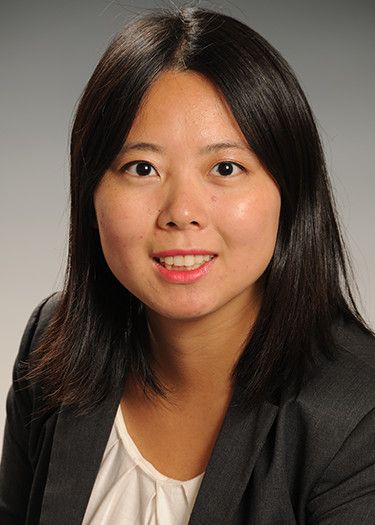User login
Editor’s note: The Society of Hospital Medicine’s (SHM’s) Physician in Training Committee launched a scholarship program in 2015 for medical students to help transform health care and revolutionize patient care. The program has been expanded for the 2017-18 year, offering two options for students to receive funding and engage in scholarly work during their first, second and third years of medical school. As a part of the longitudinal (18-month) program, recipients are required to write about their experience on a monthly basis.
This phase of the QI project aims at a thorough understanding of the process flow of a patient, from being transferred from outside the hospital, receiving tertiary care services at Dartmouth-Hitchcock Medical Center, to being discharged to a rehabilitation facility/skilled nursing facility.
I am conducting interviews with key stakeholders to understand the current processes and needs for improvement. The key stakeholders include but are not limited to infectious disease, hospital medicine, nursing, case management, and psychiatry services.
I have developed an interview guide to facilitate the interviews. Based on a framework similar to SWOT analysis, the key questions include: (1) what makes this patient population particularly difficult to receive appropriate care/support? (2) What makes them difficult to be discharged when tertiary service is completed? (3) What can help them stay longer in the community and delay/prevent readmission?
I am working on retrieving clinical data from medical records and an infectious disease service database, and am going to analyze current patient status. Key metrics will include but not limited to length of stay, 30‐day readmission rate, patient satisfaction rating, infectious disease provider follow-up rate, and hospitalization cost.
A challenge I foresee I will encounter is deciding on a focused area for the improvement project. The constraints may be coming from clinical data availability or the willingness for the stakeholder to participate. For this purpose, I am going to ask each stakeholder about their priorities, and what they view as the most urgent or important aspects to improve. I also hope to identify stakeholders who might already have been thinking or working on improving care for this patient population.
I will address the data availability issue by following up closely with the infectious disease service. After I develop a general sense of the data, I will work with the interdisciplinary team to decide on a focused area for improvement.
One unexpected thing I learned during the last month was project planning. Initially, I was struggling with putting the details of the project together. I recalled later that at business school we often use timelines to facilitate project planning. I carved out two hours of my time. On a piece of paper, I wrote down one-by-one the tasks I need to accomplish for each phase of the study. I also set up an internal deadline for communications and deliverables with my advisor. Now I can track my progress much better and am confident that the project will move towards its landmarks.
Yun Li is an MD/MBA student attending Geisel School of Medicine and Tuck School of Business at Dartmouth. She obtained her Bachelor of Arts degree from Hanover College double-majoring in Economics and Biological Chemistry. Ms. Li participated in research in injury epidemiology and genetics, and has conducted studies on traditional Tibetan medicine, rural health, health NGOs, and digital health. Her career interest is practicing hospital medicine and geriatrics as a clinician/administrator, either in the US or China. Ms. Li is a student member of the Society of Hospital Medicine.
Editor’s note: The Society of Hospital Medicine’s (SHM’s) Physician in Training Committee launched a scholarship program in 2015 for medical students to help transform health care and revolutionize patient care. The program has been expanded for the 2017-18 year, offering two options for students to receive funding and engage in scholarly work during their first, second and third years of medical school. As a part of the longitudinal (18-month) program, recipients are required to write about their experience on a monthly basis.
This phase of the QI project aims at a thorough understanding of the process flow of a patient, from being transferred from outside the hospital, receiving tertiary care services at Dartmouth-Hitchcock Medical Center, to being discharged to a rehabilitation facility/skilled nursing facility.
I am conducting interviews with key stakeholders to understand the current processes and needs for improvement. The key stakeholders include but are not limited to infectious disease, hospital medicine, nursing, case management, and psychiatry services.
I have developed an interview guide to facilitate the interviews. Based on a framework similar to SWOT analysis, the key questions include: (1) what makes this patient population particularly difficult to receive appropriate care/support? (2) What makes them difficult to be discharged when tertiary service is completed? (3) What can help them stay longer in the community and delay/prevent readmission?
I am working on retrieving clinical data from medical records and an infectious disease service database, and am going to analyze current patient status. Key metrics will include but not limited to length of stay, 30‐day readmission rate, patient satisfaction rating, infectious disease provider follow-up rate, and hospitalization cost.
A challenge I foresee I will encounter is deciding on a focused area for the improvement project. The constraints may be coming from clinical data availability or the willingness for the stakeholder to participate. For this purpose, I am going to ask each stakeholder about their priorities, and what they view as the most urgent or important aspects to improve. I also hope to identify stakeholders who might already have been thinking or working on improving care for this patient population.
I will address the data availability issue by following up closely with the infectious disease service. After I develop a general sense of the data, I will work with the interdisciplinary team to decide on a focused area for improvement.
One unexpected thing I learned during the last month was project planning. Initially, I was struggling with putting the details of the project together. I recalled later that at business school we often use timelines to facilitate project planning. I carved out two hours of my time. On a piece of paper, I wrote down one-by-one the tasks I need to accomplish for each phase of the study. I also set up an internal deadline for communications and deliverables with my advisor. Now I can track my progress much better and am confident that the project will move towards its landmarks.
Yun Li is an MD/MBA student attending Geisel School of Medicine and Tuck School of Business at Dartmouth. She obtained her Bachelor of Arts degree from Hanover College double-majoring in Economics and Biological Chemistry. Ms. Li participated in research in injury epidemiology and genetics, and has conducted studies on traditional Tibetan medicine, rural health, health NGOs, and digital health. Her career interest is practicing hospital medicine and geriatrics as a clinician/administrator, either in the US or China. Ms. Li is a student member of the Society of Hospital Medicine.
Editor’s note: The Society of Hospital Medicine’s (SHM’s) Physician in Training Committee launched a scholarship program in 2015 for medical students to help transform health care and revolutionize patient care. The program has been expanded for the 2017-18 year, offering two options for students to receive funding and engage in scholarly work during their first, second and third years of medical school. As a part of the longitudinal (18-month) program, recipients are required to write about their experience on a monthly basis.
This phase of the QI project aims at a thorough understanding of the process flow of a patient, from being transferred from outside the hospital, receiving tertiary care services at Dartmouth-Hitchcock Medical Center, to being discharged to a rehabilitation facility/skilled nursing facility.
I am conducting interviews with key stakeholders to understand the current processes and needs for improvement. The key stakeholders include but are not limited to infectious disease, hospital medicine, nursing, case management, and psychiatry services.
I have developed an interview guide to facilitate the interviews. Based on a framework similar to SWOT analysis, the key questions include: (1) what makes this patient population particularly difficult to receive appropriate care/support? (2) What makes them difficult to be discharged when tertiary service is completed? (3) What can help them stay longer in the community and delay/prevent readmission?
I am working on retrieving clinical data from medical records and an infectious disease service database, and am going to analyze current patient status. Key metrics will include but not limited to length of stay, 30‐day readmission rate, patient satisfaction rating, infectious disease provider follow-up rate, and hospitalization cost.
A challenge I foresee I will encounter is deciding on a focused area for the improvement project. The constraints may be coming from clinical data availability or the willingness for the stakeholder to participate. For this purpose, I am going to ask each stakeholder about their priorities, and what they view as the most urgent or important aspects to improve. I also hope to identify stakeholders who might already have been thinking or working on improving care for this patient population.
I will address the data availability issue by following up closely with the infectious disease service. After I develop a general sense of the data, I will work with the interdisciplinary team to decide on a focused area for improvement.
One unexpected thing I learned during the last month was project planning. Initially, I was struggling with putting the details of the project together. I recalled later that at business school we often use timelines to facilitate project planning. I carved out two hours of my time. On a piece of paper, I wrote down one-by-one the tasks I need to accomplish for each phase of the study. I also set up an internal deadline for communications and deliverables with my advisor. Now I can track my progress much better and am confident that the project will move towards its landmarks.
Yun Li is an MD/MBA student attending Geisel School of Medicine and Tuck School of Business at Dartmouth. She obtained her Bachelor of Arts degree from Hanover College double-majoring in Economics and Biological Chemistry. Ms. Li participated in research in injury epidemiology and genetics, and has conducted studies on traditional Tibetan medicine, rural health, health NGOs, and digital health. Her career interest is practicing hospital medicine and geriatrics as a clinician/administrator, either in the US or China. Ms. Li is a student member of the Society of Hospital Medicine.

